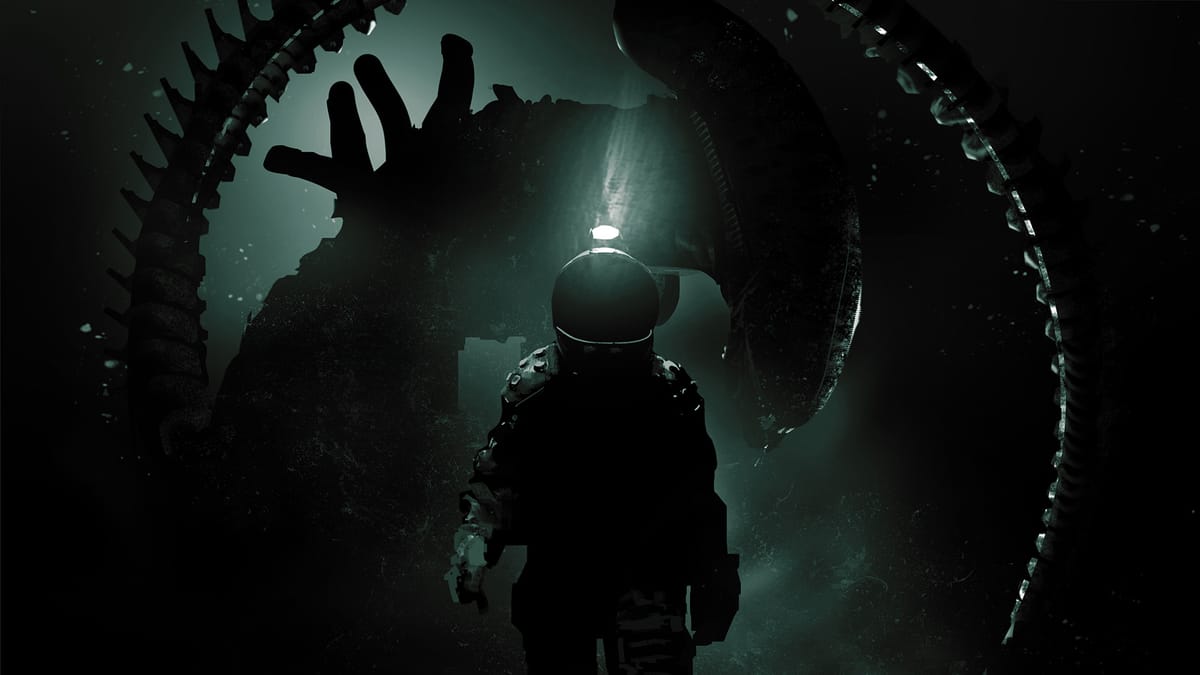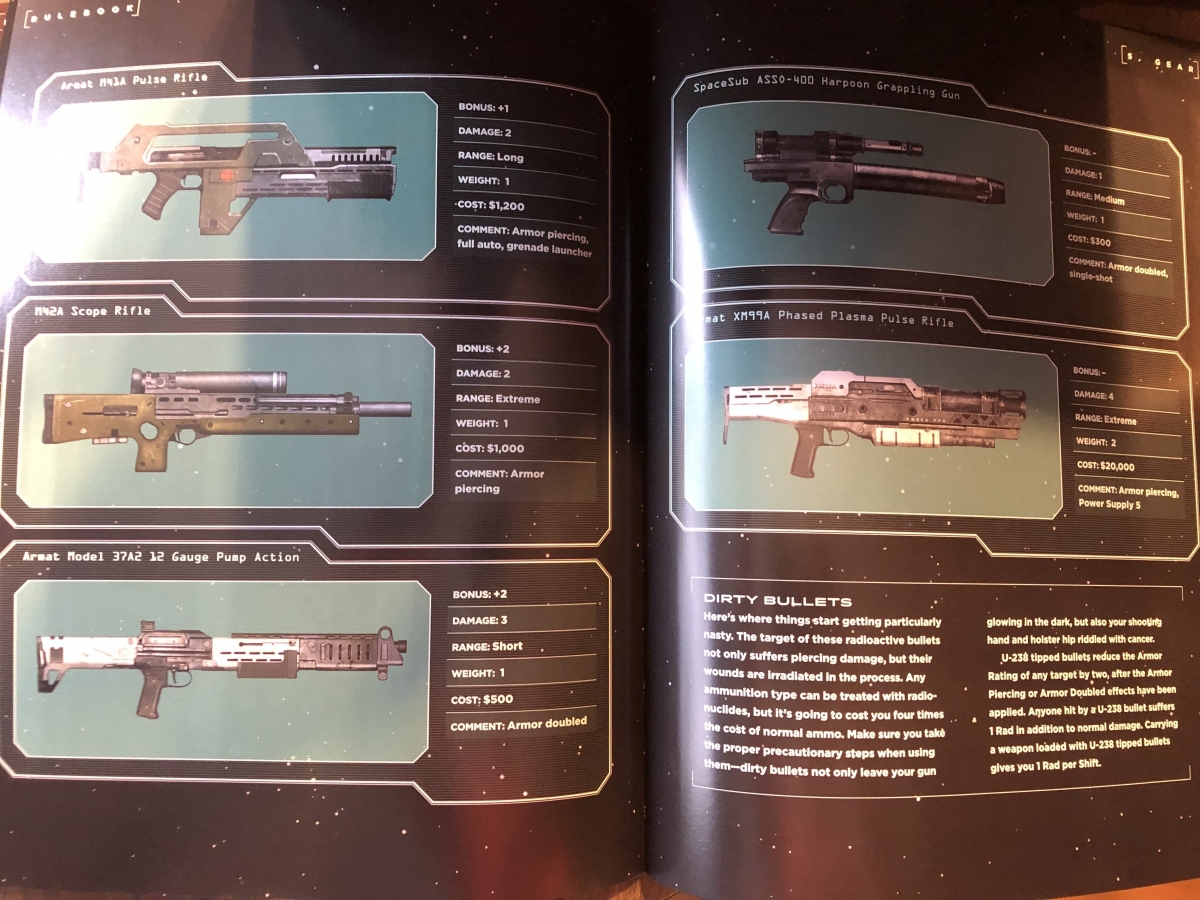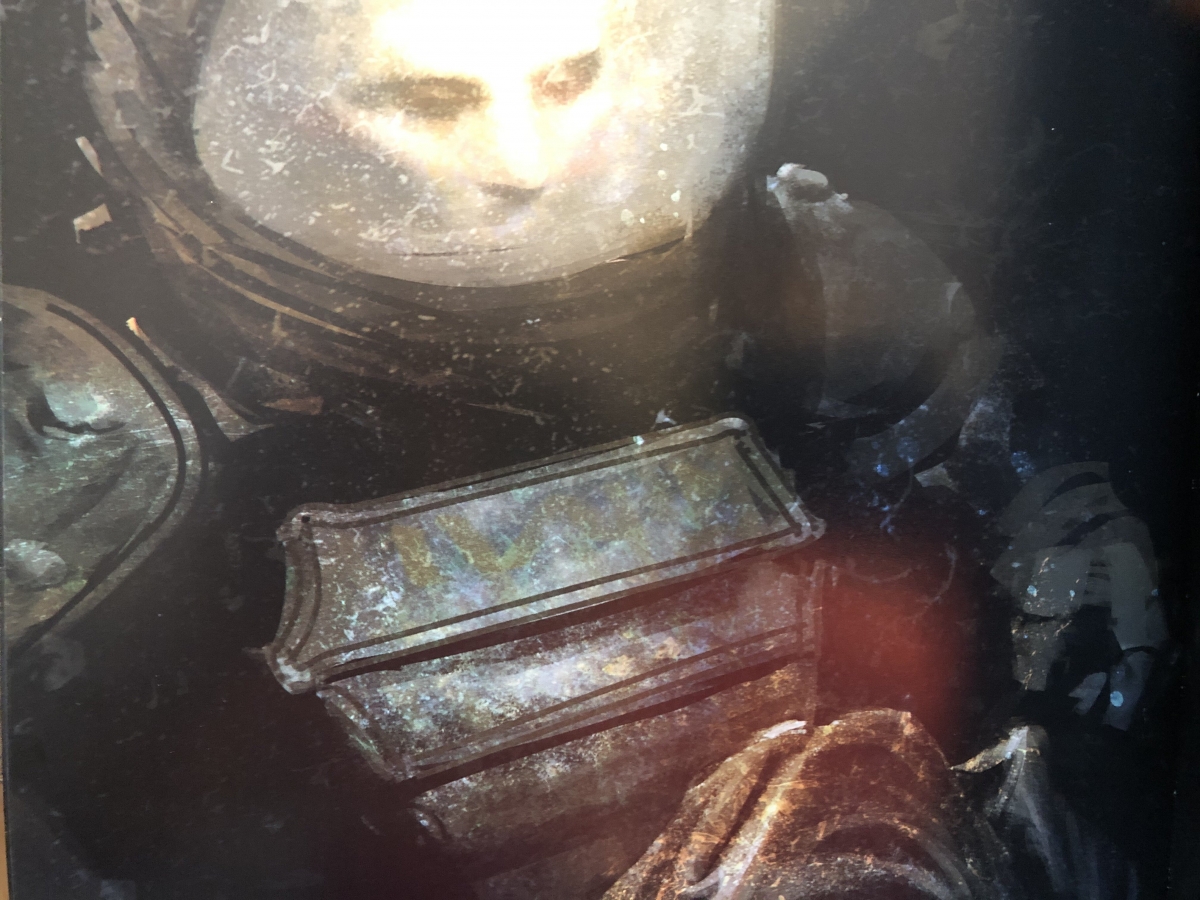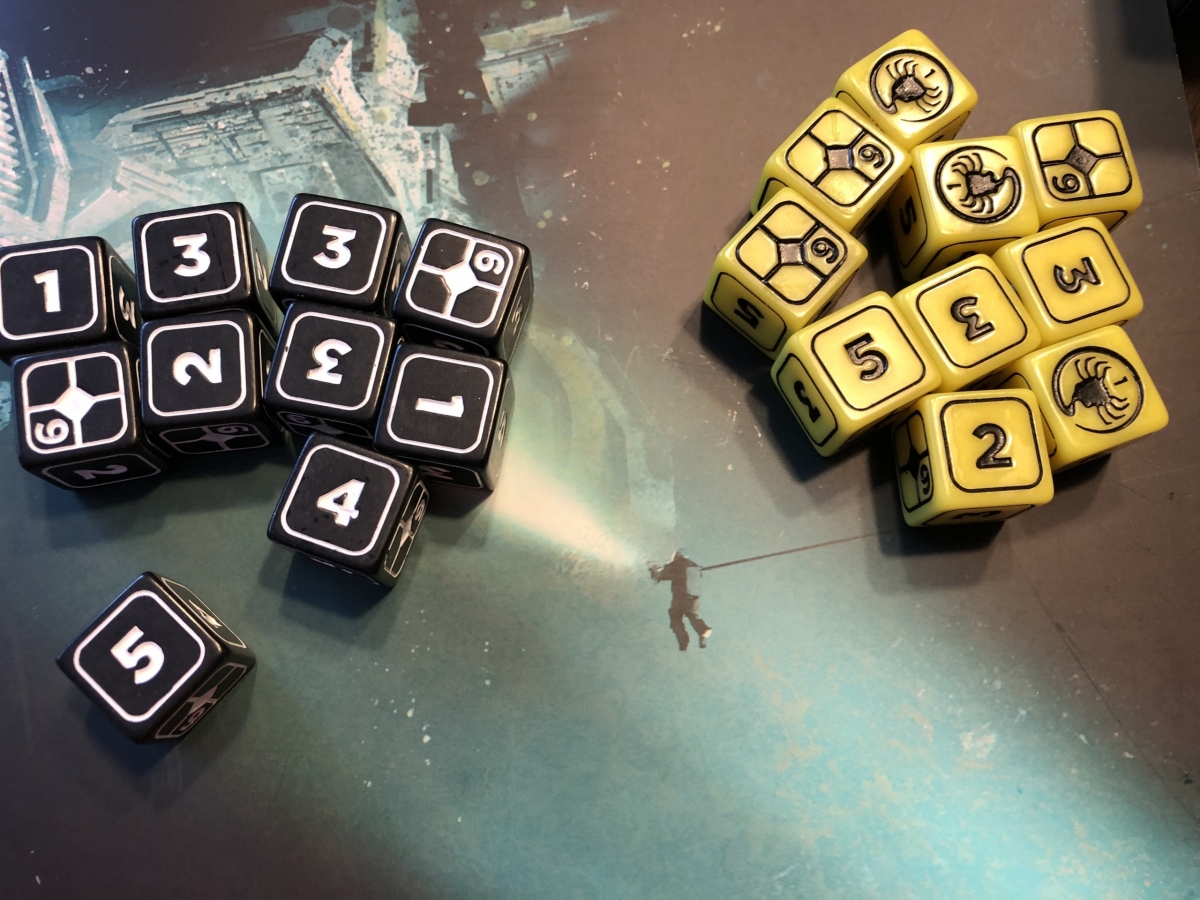
I was hesitant to learn that Alien was being adapted to an RPG setting until I learned of Free League’s involvement. Their products are the best in the business by a surprising margin, and the Alien RPG starter set is a perfect look at their plans for a setting I was worried was too limited for adaptation. After playing through this set, I’m still not certain how much room there is for more stories in the Alien universe, but I am sure that the starter set brings a lot of utility and imagination for its asking price.

PHYSICAL CONTENTS
In a world where Mothership, one of the best scifi horror rpgs, is available for free, Free League knew it needed to make an investment in the physical materials to sell this starter set. I found the objects you in this box are a pleasure to look at and a joy to use, making the investment well worth it. While the materials that compose this starter set’s components are not the highest quality, the artistry and usefulness certainly are. There is a lot in this box, and nearly all of the components would be useful as lifelong tools for Alien games, or sci-fi horror in general. The starter set contains an enormous map of nearby space, the other side depicting in large scale the player’s ship. It’s a small but impressive feat how useful they have managed to make these ship maps, and I certainly intend on cannibalizing this for future science fiction games.
You will also receive two sets of six sided dice, one standard for normal tasks and one yellow to represent stress. They have specialized symbols for success and, in the case of stress dice, failure. It’s a nice touch that this isn’t necessary, as the game is perfectly playable with normal six sided dice, but the small upgrades included with this set go a long way to sell the narrative. The normal dice are a cold and clinical black. The stress dice are an unsettling yellow, crawling with aliens that threaten to ruin your character’s slim chances at survival.
The box has a wide collection of tokens to represent various phases of aliens, characters, and the status of the ship’s systems so that you can use your ship map as a practical tool. Each character sheet is large, glossy paperwork, containing your character’s statistics along with their history and portraiture. The box also contains decks to represent initiative (which have small summaries of combat actions), equipment, and character agendas. These cards are of flimsier card stock than I would care for, and you will want to sleeve these if you intend on running a long term game.
The books themselves are, much like Coriolus, both magnificent works of art and incredibly useful at communicating their contents. Beauty and hostility clash in these large splashes of artwork, selling the dark inhumanity of extrastellar space. None of this is to diminish the usability of the text. Layout and presentation makes learning these rules easy…almost. There are a number of times when I felt the order of rules presentation was a little confusing, with half of an idea presented before it is actually explained in a few areas. The rules are not terribly complicated, but splayed out as they are all over the book, some kind of rules summary would be a huge boost to getting into the game.
The only other substantive issue I can name with these components is that you will need your own method of organization once you open this up. With all the dice, tokens, and cards contained in the box, they are going to be tossed around into a chaotic jumble unless you have some way to keep them together after you first open their containers.

RULES AND MECHANICS
The basic rules of the starter set are surprisingly comprehensive, and for everything but character generation and perhaps some GM advice, they feel pretty complete. Even if you pick up the core book in the future, this will be an excellent rules reference or player’s handbook. I detect a melding of ideas from a few different systems in this adaptation of the Year Zero Engine, but all of its decisions compliment one another and result in some of the finest scifi horror gaming I’ve had the pleasure to play.
The book begins with an overview of the Alien setting, with the Weyland-Yutani corporation and its ilk exercising a disturbing degree of control over the galaxy. Frontier space is more free, but also fraught with the challenge of few resources and still-forming installations. There are a plethora of factions that bring story types with them, and plenty of room to develop these ideas more in the core book.
The basics of the Year Zero Engine hold true here, wherein rolls consist of pools of six sided dice equivalent to your relevant attribute and skill. If you fail an important roll you can Push to reroll failed dice but take a point of stress. The stress system is new to Alien, as well as the importance of equipment and other resources. During the game, you will be tracking air, power, food, and water for your characters and their ship. Tracking these is easier than watching numbers increase or decrease, as they are governed by Supply rolls. When relevant you will roll dice for every unit of the supply in question, and lose a supply for every 1 rolled.
The rules also contain guidelines for environmental effects, such as radiation or freezing from the cold of the void. Just as with the combat rules, or everything else in this game for that matter, these rules are logically presented and easy to use. For a medium weight game that covers a lot of ground, I found myself and my players were able to jump into the game with basically no effort.
As you accumulate stress, from witnessing horrific events, pushing rolls, and a few other likely sources, a few things happen. First, every point of stress gets added to your skill rolls as a stress die. This makes you more likely to succeed, as your adrenaline pushes you to your limits, but also increases the cost of failure. If any stress die shows a 1 (indicated by the nasty facehugger symbol) you make a Panic roll, rolling a d6 and adding your current stress level. At first, you may suffer no ill effect, or small issues like dropping your handheld equipment. But as the stress accumulates, things start to get worse. You acquire stress more easily, your panic becomes more volatile, and your ability to handle the situation quickly breaks down. In combat, failures on stress dice can also force you to run out of ammunition, assuring they are more than a psychological threat.
It’s in this stress system that I feel influence from Don’t Rest Your Head, V5, and potentially Mothership itself, but this stands on its own and suits its purpose marvelously. As things start to deteriorate, your players have a physical indicator of how bad things have gotten. Those dice start to pile up, getting heavier and heavier in your hand, a growing threat that perfectly encapsulates the mounting sense of dread. Luckily, you can manage your stress in a few ways. Time, meaningful contact with other people or sentimental items, or successful use of the Command skill can reduce an individual’s stress, but as things get worse these tools will no longer avail you.

CHARIOT OF THE GODS ADVENTURE
I will be spoiling some of the bigger twists of this adventure, so be forewarned, but suffice it to say the included one shot is well written, well presented, and well conceived, but hounded by a problem I suspect some of you will anticipate as much as I have. Chariot of the Gods encapsulates my one real reservation with adapting Alien as an RPG setting: the difficult question of what one actually does with an Alien story that hasn’t been done before. Since the first trilogy (Alien 3 was good, fight me), the franchise has struggled to do anything interesting with the basic premise of the Xenomorph. Each entry has been more tired and frustrating than the last, and with as perfect an opener as the first few films, I don’t see anything new that we can meaningfully add to the setting.
Just as a thought experiment, take a moment and do something for me: close your eyes and imagine the basic elements that you would expect in a new Alien story. So you’re definitely thinking xenomorph, but you want to do something different. Maybe a new variation based on a new biological circumstance. Maybe some kind of infection making the crew go insane? Maybe an android there to complicate the mission, and a conflict between what’s safe versus what’s profitable? You just wrote Chariot of the Gods.
I can freely admit I’m being unfair here, both for the quality of the actual adventure and for the purposes of a starter set. This box was made with the intention of getting you up to speed with Alien roleplay, and it may not be safe to assume the general populace is as familiar with these stories as I. From a less pedantic viewpoint, there’s no damage done by an introductory adventure that functions as, you know, an introduction to the setting. After all, if you wanted your own more exotic adaptation, the core book is available. I haven’t read that yet, and I can’t say how well it develops the setting into something more varied, but I hope it does pay some attention to the issue of Alien’s limited scope as a setting.
Taking Chariot of the Gods on its own merit, it does deserve a lot of praise. It doesn’t do you the favor of starting with a concise summary of events, but apart from that the presentation is excellent. Full two-page spreads lay out the crew dossiers, ship’s map, and each distinct phase of the adventure. A quick read through and some notes are all a GM needs to get themselves up and running. There is a bit of strangeness in how each phase is explained to the GM, which I found more confounding than it needed to be. Each Act of the adventure consists of a number of events that they describe as “suggested” despite many or most of them being listed as “mandatory.” Once you read it and make some notations as to what is likely to happen in what order you will have little struggle, but it makes for a pain parsing out the full picture of events.
Given the destruction your crew will come across aboard the missing Cronus and their own secretive agendas, the adventure has a natural transition from tense investigation to paranoia to all out chaos. It’s a nice transition that works well with the system to ramp up tension and enforce the feeling of horror. Even if some of its tools have been used in other stories, Chariot of the Gods does excel as a playable scenario.
If there’s any struggle here, it’s that this starter set costs about as much as the core book, depending on your location. $50 is a lot to ask for a one shot. I think it is worth that price, considering how much use its components can be to you in the future, but only if you intend on starting with a playthrough of Chariot of the Gods. Of course, these rules are adaptable enough to fit any space scenario, provided you wanted a focus on horror in your adventures. If you like what you find, you will have a high quality experience for five or six people, and the know-how to get moving effortlessly when you pick up the Core book. Alternatively, you could skip the core and move directly onto the Destroyer of Worlds boxed set. I will be taking a look at that next, so keep your eyes open for my thoughts on more horror in the cold expanse.
Alien RPG Starter Set
Great
The Alien starter set makes a strong argument for itself and the Alien RPG as a whole, representing an intelligent adaptation of its core engine to scifi horror. Apart from character generation rules, it practically gives you all the tools you need to run adventures in space, xenomorphs or not, not to mention the maps, tokens, and cards that can carry you far into the future. While I had some issues with this starter set, its quality and usefulness beyond the introductory adventure more than makes up for the asking price.
Pros
- Wondrous and terrible presentation of the rules
- Excellent adaptation of the Year Zero Engine for scifi horror
- Components that will be useful for lifelong adventures in the dark of space
Cons
- Some predictability in the core adventure
- Not all components will hold up well on extended use
- Slight organization problems in the rules and adventure
